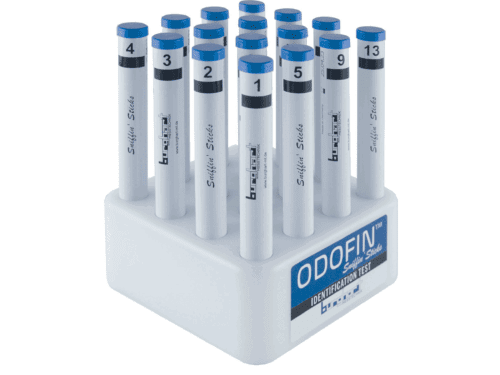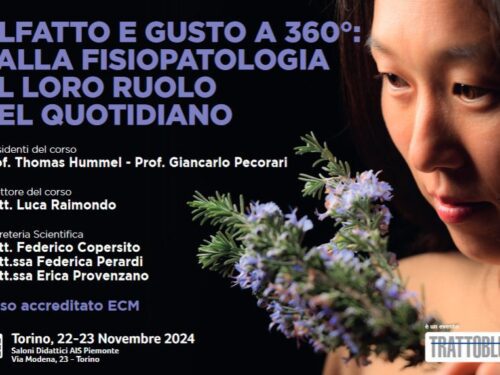
It is clear that the sense of smell is important for the quality of life. Being unable to smell temporarily or for a long time has a major impact on how we experience things and can greatly hinder us in our daily life.
Since the outbreak of corona, it has also become clear to the general public that loss of smell can be associated with carrying a disease. In this case the coronavirus. However, scientists have long known that the sense of smell can be linked to our physical and mental health. Loss of smell is therefore not only an issue with a COVID-19 infection, but also with many other diseases.
Smell Loss and Alzheimer’s
One of the diseases in which loss of smell plays a role is Alzheimer’s. The decline in the sense of smell is an early warning sign of Alzheimer’s disease in both human and animal studies. This has been confirmed again in a recent study. The results in this study indicate that loss of olfactory function is closely associated with both the level and progression of neuropathological damage seen in Alzheimer’s disease. The study provides new evidence that may explain why a poorer sense of smell is an early warning sign of Alzheimer’s-related disorders.
Loss of smell and Parkinson’s
Loss of sense of smell is a common but little-noticed symptom that can occur years before motor symptoms or a Parkinson’s diagnosis. Some studies use scent loss to identify people who may be at risk for Parkinson’s disease. It is therefore a useful biomarker to monitor the progression and severity of the disease. Because this symptom often occurs before motor symptoms of the disease are apparent, early-stage olfactory testing is of interest as a possible way to screen for Parkinson’s. A recent study by Japanese researchers concluded:
“Olfactory dysfunction in both men and women was more severe in Parkinson’s patients with a previous diagnosis than in patients recently diagnosed with Parkinson’s. So the decreased sense of smell in Parkinson’s can get worse over time”
There is also a very interesting new study about smell in relation to parkinson disease. This study has arisen from the observation of Joy Milne, who discovered that she can distinguish Parkinson in individuals from a distinct body odour before clinical symptoms occur. Joy has hereditary Hyperosmia – heightened sense of smell – which has been exploited to find that Parkinson’s has a distinct odour which is strongest where sebum collects on patient’s backs and is less often washed away. Based on these findings they have now determined a new method to detect Parkinson’s disease by analysing sebum with mass spectrometry. Interesting to see how someone with an increased sense of smell can lead to a new development in the early detection of Parkinson’s cases.
Diabetes
In the case of diabetes, a link can also be shown with loss of smell. Several studies have found a link between diabetes and olfactory disorders.
One study found that people with type 1 diabetes had a worse sense of smell than people without diabetes. Many studies show that the more severe a person’s diabetes complications, the more likely they are to have a decreased sense of smell.
Dementia and the loss of smell
A poor sense of smell may be an early warning sign of dementia, according to studies. This study found that those who couldn’t name at least four out of five common smells were more than twice as likely as those with a normal sense of smell to develop dementia within five years.
About 78 percent of the test subjects could name at least four of the five odors presented and thus had a normal sense of smell. 14 percent could recognize only three scents. 5 percent could only name two, while 2 percent could name only one, and 1 percent couldn’t identify any of the scents.
Five years after the test, almost all the people who couldn’t identify any smell had been diagnosed with dementia. Nearly 80 percent of those who gave only one or two correct answers also suffered from dementia.
“These results show that the sense of smell is closely linked to brain function and health,” the study’s lead author, ENT specialist Jayant M. Pinto, said in a written statement. “We think that the sense of smell in particular, but also sensory function in general, may be an important early sign that puts people at greater risk of dementia.
Cystic fibrosis and loss of smell
Cystic fibrosis is a multi-system disease that can also cause respiratory symptoms such as coughing up mucus and infections of the respiratory tract. Twelve to 71% of CF patients report odor changes. This study investigated the relationship between loss of smell and cystic fibrosis. The conclusion of this study is that most patients have a relevant olfactory disorder, although only a small percentage explain such a change. Careful evaluation with simple and rapid olfactory tests helps to select the patients who may benefit from specific therapies.
Loss of smell and the coronavirus
Loss of smell (and taste) is a common consequence of an infection with the coronavirus. About two out of three people who become infected with the coronavirus experience a loss of smell and taste. On our website we have written several articles that further elaborate on the connection between COVID-19 and loss of smell. Read more about loss of smell due to corona here.
Sense of smell and cancer
People with cancer also often change/reduce the sense of smell and taste. In addition to the presence of a tumor, there can be various causes that affect the sense of smell and taste. Think of chemotherapy, radiotherapy, medication and inflammation and metabolic dysregulation. According to studies, about 55 to 75% of cancer patients experience changes in smell and taste.
Testing the sense of smell and taste
Smell tests are used in most of the studies we have mentioned on this page. An olfactory test assesses the ability of test subjects to detect, distinguish or identify odors. The most commonly used olfactory tests are the ODOFIN olfactory tests known as Sniffin’ Sticks, but the Sensonics smell test booklets are also widely used by researchers worldwide.
In addition, there are also various taste tests for testing the taste ability.
Would you like more information about our smell and taste tests? Please let us know.







